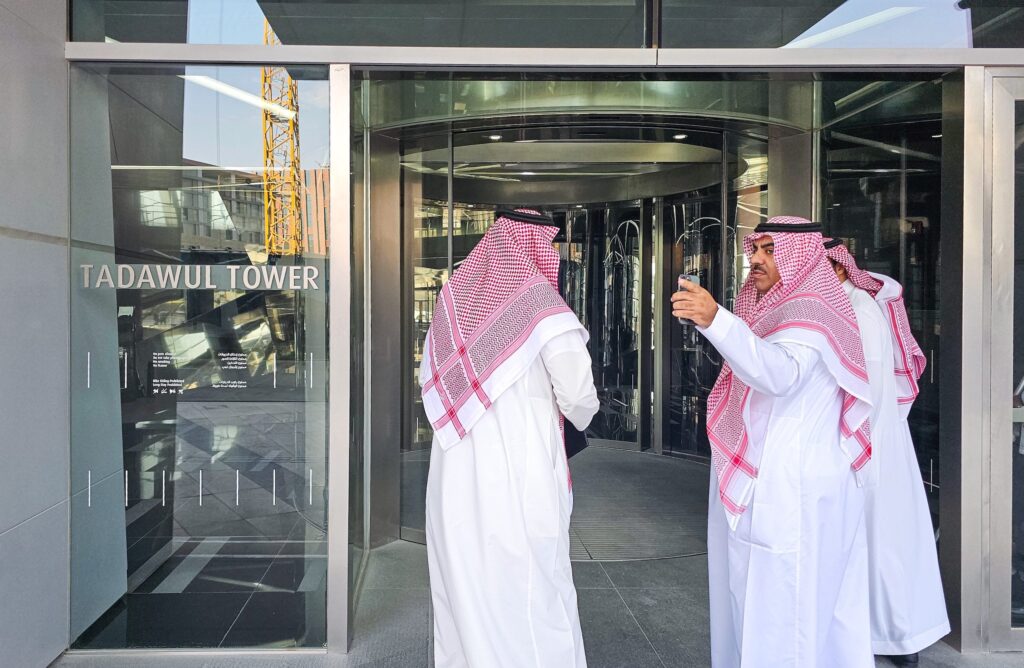4 months of declines for Tadawul
‘Excellent returns’ from real estate
Saudi institutional investors have sold nearly $3 billion of domestic stocks since the start of February, offloading shares to invest in better yielding assets instead.
Institutional selling pressure has sparked a prolonged slide in the Saudi Exchange, which has posted monthly declines for the past four months. A fifth monthly drop appears likely in June, especially as traders grapple with the impact of the escalating Iran-Israel conflict.
“Saudi sovereigns and corporations are issuing huge amounts of debt, while real estate is providing excellent returns – both are draining liquidity from the stock market,” says Marwan Haddad, managing director at Azimut Group, which has $110 billion of assets under management.
“Also, the IPO programme is taking from the market. Investors aren’t placing significant additional money with institutions, so they are having to sell some of their existing equity holdings to subscribe to IPOs.”
From February 1 to June 12, domestic institutions were net sellers of SAR10.9 billion ($2.9 billion) of stocks, according to an AGBI analysis of bourse data.
In the first five months of 2025, the government and Public Investment Fund issued $19.8 billion of foreign currency debt and riyal-denominated sukuk and bonds, London Stock Exchange Group data shows. In late May the government issued a further $16 billion in riyal-denominated sukuk.
Debt issuance continued in June, with Saudi Aramco selling $5 billion of bonds on coupons of 4.75 to 6.38 percent. By contrast, the iShares MSCI Saudi Arabia exchange-traded fund offers a dividend yield of 3.9 percent.
In the real estate sector, apartment and villa prices in Riyadh rose 9 and 11 percent respectively in the first quarter versus the prior-year period, according to consultancy Knight Frank. Quarterly residential sales in Riyadh, Jeddah, Dammam, Mecca and Medina totalled SAR39.1 billion.
Over the past two years, higher-for-longer interest rates have spurred Saudi retail and institutional investors to reallocate money from the stock market to sharia-compliant term deposits and other Islamic assets such as sukuk, says Aqib Elahi Mehboob, head of sell-side research at Riyadh’s BSF Capital.
“Anytime you have higher risk-free rates, there’s an incentive to allocate more cash to the likes of term deposits and other instruments that provide a guaranteed return,” says Mehboob.
The Federal Reserve has cut interest rates since last September although they remain elevated. Saudi Arabia’s benchmark rate – which usually mirrors the US because of the riyal’s dollar peg – has been slower to decline. This is down to regulatory factors and tight liquidity, according to Mehboob.
Saudi nationals are typically reluctant to invest in interest-bearing assets because of religious considerations, but “over the past 5-6 years, financial institutions have introduced more and more Islamic instruments, opening up a new avenue of investment”, says Mehboob.
“Previously, the options were stocks, real estate or interest-free accounts. Now, one can invest more easily in a sharia-compliant way.”
Such instruments provide a return, usually a profit rate, that mirrors conventional interest rates. Further interest rate cuts should bring money back into Saudi stocks and out of profit and interest-bearing assets, according to Mehboob.
“When interest rates fall, risk appetite increases,” he says.
Nevertheless, Saudi Arabia’s bourse does not scream “buy”. Valuations remain high, with the market trading at a trailing price-to-earnings ratio of 16.8, according to Simply Wall St, despite the main index declining 9.1 percent this year and slumping to a 20-month low on June 15. Banks and petrochemicals dominate Saudi bourse weightings.
“Banks are facing net interest margin pressure as liquidity is pricey while the petrochemicals industry is experiencing a severe downturn,” says Haddad.
“Over the past 4-5 years the Saudi index has been flat, so the only money investors have made is through dividends.
“For institutional investors, dividend payouts aren’t enough to cover their costs – if you’re investing in a stock market, you’re in it for growth.
“If you want a guaranteed income, you buy debt or put your money in term deposit bank accounts.”



